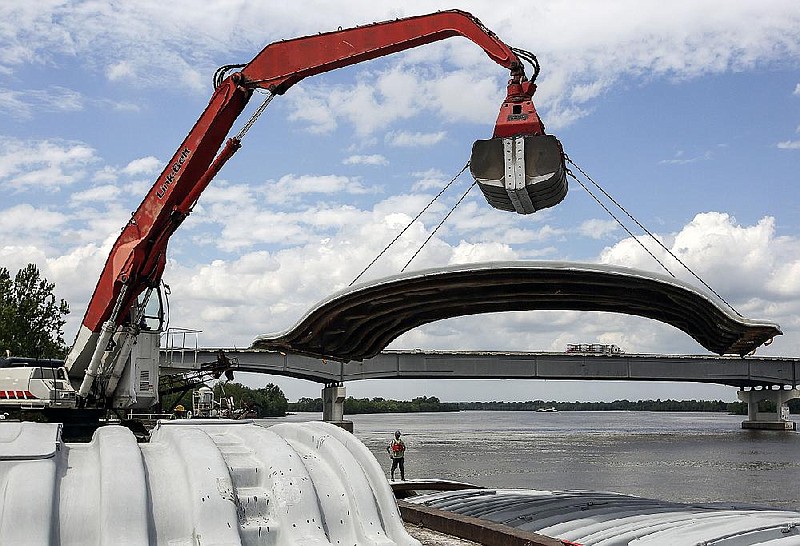The Port of Little Rock, as of July 1, will raise the rates it charges to move rail cars and other railroad services it provides, resulting in an additional $400,000 in annual revenue, according to the port's top executive.
Fees from rail car movements within the port are the largest source of revenue for the Arkansas River port. The most recent fee increase was in 2012, Bryan Day, the port's executive director, told the port authority board of directors Wednesday.
"Ten years is a long time to go without raising rates," board Chairman Joe Bailey said.
Jean Pulliam, the port's railroad agent, said the rates will be reviewed every three years going forward.
Last year, the port collected $1.5 million in switching fees, the primary source of revenue for the short-line Little Rock Port Authority Railroad. It is budgeted to collect a similar amount this year. Total annual revenue for the port is about $3 million.
The port has been collecting $300 to switch a rail car carrying a non-hazardous load, which involves taking it from or handing it off to a Class 1 railroad. There are two Class 1 railroads providing service to the port: Union Pacific and BNSF Railway.
Under an amendment to the Little Rock Port Authority Railroad's freight tariff agreement, that switching fee will rise to $325, an 8.3% increase.
Most other rates, including short-term and long-term storage fees for storing rail cars, also will rise under the amendment, which the port authority board of directors adopted unanimously.
Storing rail cars has become an increasing source of revenue for the port.
Short-term storage, which had been capped at $360 per car, now will begin with a $200 switch fee and a $15 daily storage charge with no cap.
Long-term storage without a track lease agreement will include a $200 switch fee and $6 per day for storage. With an agreement, the switch fee will be $100 with a $3 per day storage fee plus $1 per foot of track leased. Under the existing tariff, long-term storage was $1 per day with no switch fee.
A consultant recommended raising the fees after comparing the Little Rock port's rates to other inland ports. The port staff circulated the proposed fee increases among the port tenants for feedback.
"No one had objections or even a concern, which surprised me," Day said.
